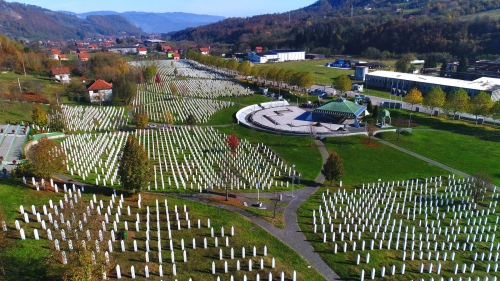Dark clouds lift in India
 |
V.S. Naipaul, perhaps the greatest writer of our time, made political news the other day that didn't quite make it past India.
Sir Vidia, you'd recall, was born in Trinidad of Indian parents of peasant stock and developed a complex about it as an immigrant in England.
He won his first fame savaging India in his seminal 1975 work, The Wounded Civilization. The brown Briton could find nothing redeeming about the land of his ancestors or its people.
But on recent visits to New Delhi as a guest of the Hindu fundamentalist government, he seemed totally transformed.
On the eve of the just-concluded national election, he visited the offices of the ruling Bharatiya Janata Party and said he was happy to be "appropriated" by it.
He even endorsed the BJP's 15-year campaign to turn a 16th-century mosque in Ayodhya into a Hindu temple.
The 1992 destruction of the mosque led to sectarian riots, in which 1,100 Muslims were killed. And "Ayodhya" became shorthand for the BJP's Hindutva: supremacy of Hindu religion and culture over Christian, Muslim and other minorities.
But Sir Vidia saw Ayodhya as "a sort of a passion," and said "passion leads to creativity."
His coming out of the closet didn't surprise those familiar with his evolution.
He had attributed India's "wounds" to Muslim invasions. He was scathing about Islam, following his travels in Iran and elsewhere. His anti-Muslim rants were echoing the BJP's.
His, and the BJP's, vision has just been thoroughly trashed by Indian voters. That's the most significant outcome of the election that saw the BJP replaced by a Congress-led government.
Many factors undid the incumbents. But there's no mistaking what the world's largest democracy has just done.
It has turned away from Hindu nationalism, which had been the most dramatic political and intellectual movement in post-independence India.
Secularism had been India's creed since the 1947 end of British rule was marred by Hindu-Muslim massacres.
It had not cured all religious ills. Majority Hindus and minority Muslims still clashed, the latter often victimized with police collusion. But the troubles were spasmodic, initiated by thugs or unscrupulous political aspirants and invariably condemned by Congress, the natural governing party, and others.
The BJP made communalism national and respectable.
The party's roots lay in the paramilitary National Self-Help Front, known by its Hindi (repeat Hindi) initials RSS, founded in 1925.
It was anti-Muslim. It felt that national leader Mahatma Gandhi was too soft on them. Just as he was pondering a visit to Muslim Pakistan in 1948, an RSS sympathizer assassinated him.
The RSS also has had a pro-Nazi strain. In the 1930s, a leading ideologue praised the killing of Jews. In the 1990s, the head of an affiliated party hailed Hitler.
The RSS presides over a "family." One group runs 13,000 ideological schools - madrassas, if you will.
Another, the World Hindu Council, does outreach, including among Hindus in Canada. Another recruits young toughs. Its political wing, the Jan Sangh, was formed in 1951.
The RSS ideology is simple: India belongs to Hindus. Jews and Zoroastrians are guests. Christians and Muslims are invaders.
Muslims are the worst. They breed like rats (an assertion also made by Slobodan Milosevic).
Their sympathies lie with Pakistan. They must be Hindu-ized. Those willing to be are "moderates" and "reasonable." The rest must choose between Pakistan or Qabristan (graveyard). The ideas remained marginalized until the 1980s, when the Jan Sangh was reconstituted as the BJP. Its launching pad was the Ayodhya crusade.
Secularists were shocked, but the party had tapped into populist sentiment. Its fortunes soared and by 1998 it had formed a coalition government.
Once in power, it started distancing itself from its militancy and shelved the Ayodhya issue. It boasted, rightly, that it was keeping Hindu-Muslim peace.
But impatient BJP cadres were making regular treks to Ayodhya. It was one such angry group returning home on a train to the state of Gujarat that threw the political calculus off.
At a station named Godhra, they were said to have taunted a Muslim vendor and tugged at his beard. His supporters torched a carriage, killing 59.
State-wide retaliation followed. Gangs came armed with swords, tridents, bombs and computer printouts showing Muslim homes and businesses.
They gutted 20,000 homes and 360 mosques. About 2,000 were killed and 100,000 made homeless. Police stood by as women were gang-raped, cut open or set on fire.
The BJP premier of the state, an RSS stalwart, was accused of protecting the perpetrators of the pogrom. But he won re-election with a thumping majority.
Prime Minister Atal Behari Vajpayee, trying to be conciliatory to Muslims and also pander to his aroused faithful, said that what had happened was "a disgrace to the whole nation" but that Muslims had brought it on themselves by "not criticizing Godhra enough."
Meanwhile, as tensions rose with Pakistan over the border state of Kashmir, Hindu nationalist statements against Pakistan and India's Muslims sounded interchangeable.
But in the months leading up to the elections, Vajpayee and the BJP leaders went back to being moderate. He successfully revived efforts to normalize relations with Pakistan and won applause for permitting cricket matches against Pakistan.
But the stain of Ayodhya and Gujarat remained.
The best of India resurfaced. Human rights activists, NGOs, journalists and authors, many of them Hindus, kept up a steady drumbeat of criticism. Among them: author Arundhati Roy, Rajmohan Gandhi (grandson of the Mahatma) and former prime minister I.K. Gujral.
A revived Congress party under Sonia Gandhi ran an effective campaign, shelving its own past flirtations with the politics of communalism.
The voters did the rest, ignoring Sir Vidia's unsolicited advice.
I have drawn from Sir Vidia Gets It Badly Wrong, an article in Outlook magazine by William Dalrymple, and these books on the 2002 Gujarat massacre: Lest We Forget, edited by Amrita Kumar and Prashun Bhaumik (World Report); Gujarat - The Making Of A Tragedy, edited by Siddarth Varadarajan (Penguin); Harvest Of Hate, by Swami Agnivesh and Valson Thampu, (Rupa and Co.).
Haroon Siddiqui is The Star's editorial page editor emeritus. [email protected].
Topics: Conflicts And War, Government And Politics, Hinduism, India
Views: 6955
Related Suggestions
Generally Hindus are not against Islam or Muslim. Both Communities have coexisted in India for over 1000 years amicably, even though their religious belief quite different and opposite.
Muslims should not be considered as invaders. They are also 'bhumiputras' as other any other communities in India. It is the politicians sometimes creates the animosity between themselves.
With love Shihabudheen
For the BJP to recruit a pathetic creature like Naipal underlines their own hypocrisy about stigmatizing foriegn born Indians.
The author is mistaken if he believes that a Congress victory will change much. Until the RSS and all other outfits of Hindu terrorism are stamped out, there can be no peace in the subcontinent.

















